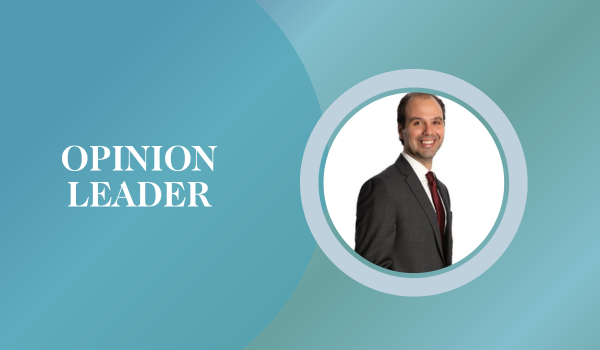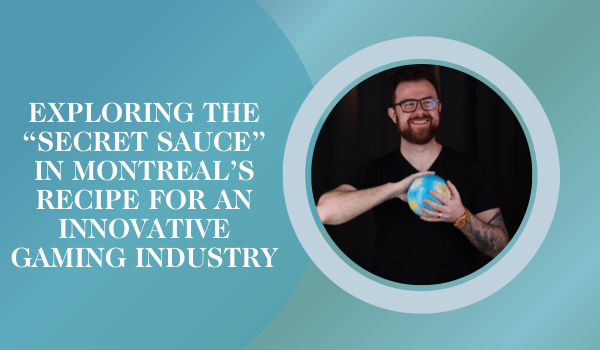Canadians need “rational optimism,” long-term thinking, more partnerships: R$ conference
“Rational optimism,” longer-term thinking and equitable partnerships can improve Canadians’ productivity and well-being as well as research and innovation, speakers told Research Money’s annual conference.
 Thinking and caring about the impacts of projects over timeframes of two, five, 10 and 100 years can help lead to beneficial outcomes, said Frédéric Bouchard (photo at right), professor of philosophy and dean of the Arts and Science Faculty at the Université de Montréal.
Thinking and caring about the impacts of projects over timeframes of two, five, 10 and 100 years can help lead to beneficial outcomes, said Frédéric Bouchard (photo at right), professor of philosophy and dean of the Arts and Science Faculty at the Université de Montréal.
“You have to be forward-looking in a meaningful way, beyond the short term,” he said at the opening session of Research Money’s 23rd annual conference, held in Ottawa. The theme for the conference was “Reverse-Engineering the Future: Creating the future we want in Canada in 15 years.”
“Thinking over different temporal frames ultimately is the right mindset, both from a prosperity and a well-being aspect,” Bouchard said.
Such thinking, he said, informed the federal government’s Advisory Panel on the Federal Research Support System which he chaired. The government acted on many of the report’s recommendations in Budget 2024, which committed $3.5 billion in new strategic research infrastructure and federal research support, including increased funding for core research grants and higher salaries for master’s, doctoral and post-doctoral scholarships.
“I don’t think everything’s resolved. But I’m heartened by the budget. Now let’s work together on implementation,” Bouchard said.
 As for the need for long-term thinking, many Indigenous cultures incorporate “seven-generation thinking,” said Tabatha Bull (photo at left), president and CEO of the Canadian Council for Aboriginal Business, and co-speaker at the opening session.
As for the need for long-term thinking, many Indigenous cultures incorporate “seven-generation thinking,” said Tabatha Bull (photo at left), president and CEO of the Canadian Council for Aboriginal Business, and co-speaker at the opening session.
This means not only thinking about the impact of a project or opportunity on the seventh generation in the future, but also thinking about the past seven generations, she said.
It is important to take the time to think about the impact of on the seventh generation, “particularly if it’s a technology that we haven’t seen in the past,” Bull said.
“We need to start to bring that diverse thinking, that diverse way of evaluating opportunities, into our boardrooms and into academia.”
However, the structures and mechanisms of government, the corporate boardroom, and academia aren’t set up to encourage and act on seven-generation thinking – or even 10 years into the future.
First Nations subject to the federal Indian Act are required to hold an election every two to three years, Bull noted. Federal and provincial elections are held every four years. Corporate boards think in terms of quarters per year. Some post-secondary institutions have developed longer-range strategic plans, but they typically consider only five years into the future – not decades. And all universities and colleges are framed on delivering the current academic year.
“We really need to be thinking long-term about what are the opportunities that are coming, and how are we preparing communities to be ready,” Bull said.
For example, Canada’s goal of net-zero emissions by 2050 will entail doubling to tripling the current generating capacity of the national electricity grid.
First Nation communities are located everywhere along that grid, Bull noted. “How are we preparing for those communities to be partners in that electrification strategy?”
Bouchard acknowledged that the multi-year funding allocated for research and science infrastructure in Budget 2024 has raised concerns that the funding could be cut or cancelled under a new federal government.
“There’s a valid question about the pace of investments or the intensity of investments, whether it should be front-ended or back-ended,” he said.
But his view is that the funding had to be allocated over multiple years, “because what we want is a change in momentum and direction for Canadian science and innovation.”
“It’s a mistake to just want dollars,” he added. “You would expect meaningful government action to be a multi-year trajectory change.”
The hope is that some fundamental recommendations by the federal advisory panel, and incorporated in Budget 2024, are strong enough that they’re beyond partisan thinking and issues, Bouchard said.
“Our recommendations were framed that way: Make sure we have the capacity to respond quickly [to challenges and opportunities], but capacity means building muscle all the time, not training the weekend before the race.”
Developing capacity and partnerships that make sense
Bouchard pointed out that in looking out to 2050, there is no way to maintain Canadians’ prosperity and well-being without having “privileged access” to talent and the best ideas. That access comes from research innovation, and not only from research and innovation, he said.
“You’re going to need this interplay, you’re going to need more partnerships with communities. You’re going to need more partnerships with industry, with universities and colleges,” he added.
“Because you will need more talent and more better ideas and more means of implementing them. Whichever lane you pick [in terms of political ideology or values], you’re going to need that.”
Bouchard said when he hears the word “productivity,” he thinks about planning improvement, being forward-looking, and investing to improve things. “When we’re concerned about low productivity, ultimately what I’m concerned with is that we don’t care enough about the future.”
So the aim should be: How do we develop a capacity that makes sense over two, five, 10, 100 years, he said.
Everything we do is ultimately aimed at supporting happiness and human flourishing, Bouchard added. “Prosperity doesn’t mean anything if we’re unhappy.”
“Science, research and innovation are really awesome means of supporting human flourishing, if we do it right,” he said.
Bull said she’s seeing some positive changes when it comes to growing the Indigenous economy, given how Indigenous people “were purposely and systematically excluded from the Canadian economy in various different ways.”
Up until the 1950s, First Nations people who obtained a post-secondary degree were disenfranchised and no longer considered a First Nations person in their community, she said. First Nations also weren’t allowed to sell their goods and wares outside of their community.
But now there are more than 60,000 Indigenous businesses in Canada, covering every sector and size, Bull said. The Canadian Council for Aboriginal Business has over 2,300 members.
A 2016 survey commissioned by the Council found that Indigenous businesses could supply 24 per cent of the federal government’s annual spend on goods and services, at a time when Ottawa was spending less than one per cent with Indigenous businesses.
Bull said the Council now has a commitment from the government to spend a minimum five per cent of its annual spend with Indigenous businesses. “We’re moving forward on that.”
More large corporations and companies also are coming forward to invest in and establish partnerships with Indigenous businesses and communities, she said.
She pointed to the 2020 $1-billion deal between Nova Scotia-based Clearwater Foods – Canada’s largest seafood company – and five local First Nation communities that are now 50-per-cent equity owners in the company. The deal also enabled the communities to take back their fishing treaty rights and fish allotments.
“We’re seeing equity partnerships that are happening across the country,” Bull said. “There is a significant amount of optimism.”
The post-COVID new normal has to be a “new normal”
 Maydianne Andrade (photo at left), University Professor of biological sciences at the University of Toronto and co-founder and president of the Canadian Black Scientists Network, moderated the opening session.
Maydianne Andrade (photo at left), University Professor of biological sciences at the University of Toronto and co-founder and president of the Canadian Black Scientists Network, moderated the opening session.
She asked Bull and Bouchard about whether any lessons learned during the COVID pandemic, such as how to develop and deliver innovations more quickly – like the mRNA vaccines – can be retained post-COVID.
Bull pointed out that countries that did well during COVID were led by women, with emotionally intelligent leadership. Society needs to make sure we don’t go back to dismissing or de-valuing this emotional intelligence, she said.
Another lesson is that even though COVID showed change and policies can be made very quickly, in some cases those policies went awry because they didn’t have diverse input right at the start of the policymaking.
For example, Bull said, Indigenous businesses on reserves initially couldn’t apply for federal Canada Emergency Business Account (CEBA) support because of the way on-reserve businesses that have employees with Indian status are required to report their taxable income.
“We went back to government and helped them understand that, and those changes were made,” she said. But the experience underscored the need to include diverse voices in policy development.
During COVID there was an increase in female CEOs running global S&P 500 companies, but now that number has started to decline, Bull said. “We have to ensure that we’re continuing that momentum and creating spaces and bringing diversity at those decision-making tables.”
“Our new normal has to be a new normal,” rather than the pre-COVID days and ways of operating, she said.
Bouchard agreed, saying: “We have to stay focused and follow through on these things we improved, not consider them just emergency measures or exceptions.”
He said it’s also important to recognize that young people aged 15 to 19 – the stage of life where they’re becoming young adults – experienced the two pandemic years differently than older people with more life experience, including other traumas or tragic events.
“If you’re younger, it [the pandemic] is a different experience,” he said. “For these young people, they’re not better or worse but they’re different. They’ll be fine, but they’re different.”
Given these young people’s pandemic experiences, “there’s some ‘muscle memory’ that’s just not there about certain types of social interaction,” Bouchard said.
“So for colleges and universities and employers, it’s [about] how do we make sure that we sustain their flourishing and leverage their strengths to our overall benefit.”
Bouchard said it’s tempting, given Canada’s challenges with productivity, the post-COVID recovery, affordability, housing and other issues, to become cynical.
“Please do not become cynical,” he told Research Money conference participants. “Because rational optimism is the most pragmatic thing to do.”
The rational optimist doesn’t think things will be good; the rational optimist thinks things can be good, he noted. “And if you think they can be good, you can do things, you have agency over how to improve things.”
“Being a rational optimist means you can find value, improve well-being, if you have the right strategies, find the right colleagues, and so on.”
There’s a lot of concern and talk about increasing distrust within society, polarization, eco-anxiety especially among the young, and other worries, Bouchard said.
When people are afraid, whether it’s rational or irrational – and for many disadvantaged groups it is completely rational to be afraid – your horizon shrinks, he said.
“If people are afraid, it’s very difficult for them to plan for the future because they’re concerned with the present, rightfully or wrongfully so.”
To counter that fear, Canadians need to create the structures and the means to sustain a society that’s forward-looking or future-looking over time frames that extend beyond our individual needs, “to make sure that we’re not completely absorbed by the mirror of the present,” Bouchard said.
“Ultimately, we have to make sure that we maintain a rational hope that things can get better. Otherwise, we cannot make them better.”
R$
| Organizations: | |
| People: | |
| Topics: |
Events For Leaders in
Science, Tech, Innovation, and Policy
Discuss and learn from those in the know at our virtual and in-person events.
See Upcoming Events
You have 0 free articles remaining.
Don't miss out - start your free trial today.
Start your FREE trial Already a member? Log in
By using this website, you agree to our use of cookies. We use cookies to provide you with a great experience and to help our website run effectively in accordance with our Privacy Policy and Terms of Service.





